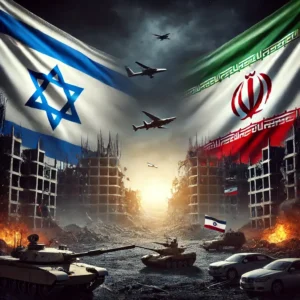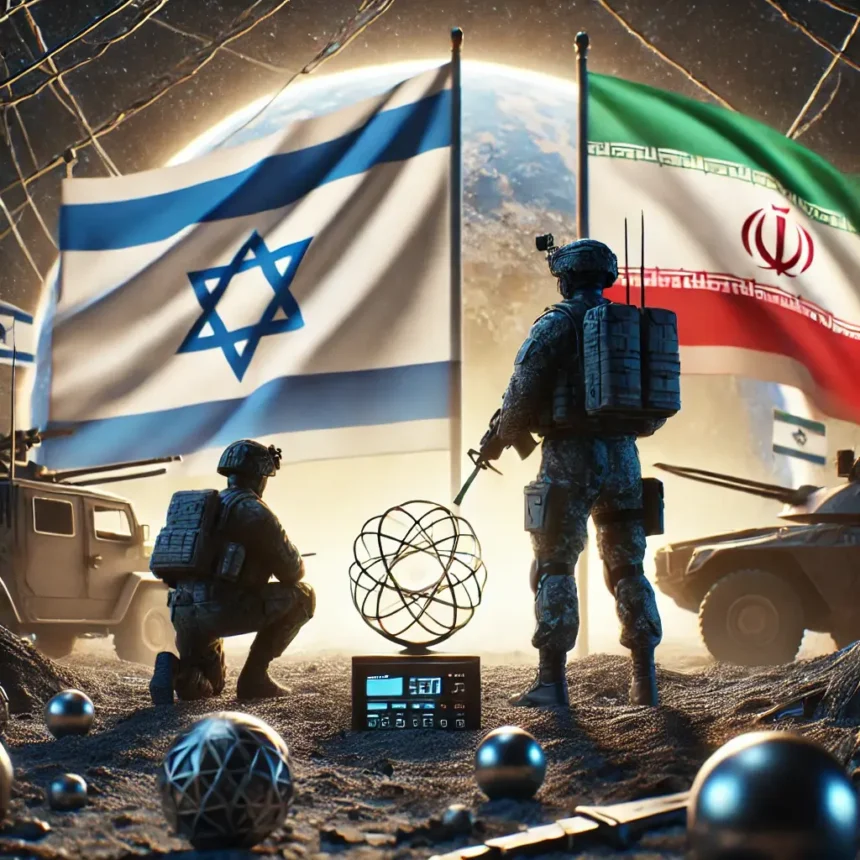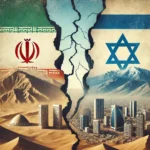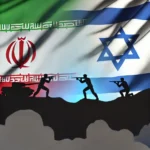Introduction
The conflict between Israel Iran War has long been a central issue in Middle Eastern geopolitics. Known for its complexity and global ramifications, the ongoing tension involves military, political, and economic struggles. This article explores the history, causes, and possible consequences of the Israel-Iran war, emphasizing an easy-to-read approach. We will break down the key aspects of the situation to provide a comprehensive understanding.
Historical Background of the Israel Iran War
The Israel-Iran conflict is deeply rooted in historical disputes. Prior to the Iranian Revolution in 1979, Israel and Iran maintained relatively peaceful relations. Iran was one of the few Muslim-majority countries to have recognized Israel in the early years after its establishment. However, this drastically changed following the revolution.
The revolution brought Ayatollah Khomeini to power, who considered Israel an illegitimate state. From that point on, Iran’s stance toward Israel became hostile. Since then, the two nations have engaged in proxy wars and military confrontations, with Iran’s backing of anti-Israel groups such as Hezbollah and Hamas.
Causes of the Israel Iran War
Ideological Differences
The fundamental cause of the Israel-Iran war lies in deep ideological differences. Israel is a Jewish state, while Iran, after the revolution, became an Islamic theocracy. Iran views Israel’s existence as a Western foothold in the Middle East and supports Palestinian movements against Israel.
Regional Power Struggles
Iran and Israel are both vying for regional dominance in the Middle East. Iran’s expansionist policies, including its support for militias in Lebanon, Syria, and Iraq, are perceived by Israel as direct threats. Israel has expressed concerns over Iran’s nuclear program, which has further escalated tensions.
Proxy Wars
Rather than engaging in direct confrontation, the Israel-Iran conflict is often fought through proxies. Iran supports groups such as Hezbollah in Lebanon and Hamas in Gaza, which regularly clash with Israeli forces. These groups are seen as Iran’s extended arm in its war with Israel.
Impact of the Israel Iran War
Military Escalation
The Israel-Iran war has led to numerous military escalations, most notably in Syria, where Iran-backed forces and Israeli military have frequently clashed. Israel has conducted several airstrikes targeting Iranian military infrastructure in Syria, aiming to prevent Iran from establishing a permanent military foothold.
Regional Instability
The ongoing conflict between Israel and Iran has contributed to the overall instability in the Middle East. Other countries, including the United States and Saudi Arabia, have become involved, further complicating the situation. The constant state of tension affects not just the two countries but also the broader region.
Economic Consequences
Economic sanctions imposed on Iran due to its nuclear ambitions have worsened the situation. Both Israel and Iran have suffered economically due to military expenditures and the economic toll of the prolonged conflict.
Challenges in Resolving the Israel Iran War
Nuclear Threat
The most significant challenge in resolving the Israel-Iran war is Iran’s nuclear program. Israel has vowed to prevent Iran from acquiring nuclear weapons at any cost, and this has led to frequent military strikes on Iranian facilities. The international community, especially the United States, has attempted to mediate but with limited success.
Diplomatic Obstacles
Efforts to diplomatically resolve the Israel-Iran conflict have repeatedly failed due to the deep-rooted ideological and political differences between the two nations. While there have been talks regarding Iran’s nuclear program, achieving long-lasting peace remains elusive.
Lack of Trust
Mutual distrust between Israel and Iran is a major hindrance to peace efforts. Both countries accuse each other of sponsoring terrorism and destabilizing the region. These accusations, combined with Iran’s support of anti-Israel militant groups, have made trust-building nearly impossible.
Possible Solutions for Peace
International Mediation
One potential solution is increased international mediation efforts, primarily led by global powers such as the United States, Russia, and the European Union. These countries could act as neutral parties to bring both nations to the negotiation table. However, the deep-seated differences make any agreement difficult to achieve.
Nuclear Disarmament
A crucial step toward peace would involve Iran abandoning its nuclear ambitions and Israel offering security guarantees. This could ease tensions and prevent further military escalations. However, both countries are unlikely to agree without external pressure.
Confidence-Building Measures
Confidence-building measures, such as economic cooperation and humanitarian efforts, could help foster trust between Israel and Iran. Such efforts could start with smaller initiatives and gradually build toward larger diplomatic engagements.
International Perspectives on the Israel Iran War
The Role of the United States
The United States plays a pivotal role in the Israel-Iran conflict, given its strong alliance with Israel and its opposition to Iran’s nuclear ambitions. The U.S. has imposed severe sanctions on Iran, aiming to curtail its influence in the Middle East. However, the U.S. involvement has also been a double-edged sword, as it has led to further entrenchment of both sides.
Russia’s Influence
Russia, on the other hand, maintains friendly relations with Iran and has been a key player in the Syrian civil war, where Iranian and Israeli forces often clash. Russia’s involvement complicates the situation, as it has sought to balance its relationship with both Iran and Israel.
European Union’s Efforts
The European Union has often taken a more neutral stance, emphasizing diplomacy and negotiations over military action. The EU played a significant role in negotiating the Iran nuclear deal (JCPOA), which was later abandoned by the U.S. under the Trump administration.
Consequences of a Full-Scale War
Humanitarian Crisis
A full-scale war between Israel and Iran could lead to a massive humanitarian crisis. Civilians on both sides would suffer from the consequences of widespread destruction, loss of life, and displacement. Refugee flows from the region would increase, creating challenges for neighboring countries.
Global Economic Fallout
Given the strategic importance of the Middle East, a full-scale Israel-Iran war could have far-reaching economic consequences. Oil prices could skyrocket, affecting global markets and economies. The instability could also lead to disruptions in trade routes, particularly those involving energy resources.
Environmental Damage
Military conflicts often result in significant environmental damage. A potential Israel-Iran war could devastate natural resources, pollute water supplies, and damage critical infrastructure. These effects would have long-term consequences for both countries and the region.

FAQs about the Israel Iran War
What is the main reason behind the Israel Iran war?
The primary reason is the ideological and political differences between Israel and Iran, with Iran’s opposition to Israel’s existence and Israel’s concerns about Iran’s nuclear ambitions.
How long has the Israel Iran war been ongoing?
The conflict has been ongoing for decades, escalating after the 1979 Iranian Revolution, with both countries involved in proxy wars and indirect confrontations.
Is there a possibility of a direct military conflict?
While a direct military conflict has been avoided so far, the risk remains due to Iran’s nuclear program and regional ambitions, which Israel sees as direct threats.
How does the Israel Iran war impact the Middle East?
The conflict contributes to regional instability, with many neighboring countries and global powers becoming involved, further complicating the situation.
Can peace be achieved between Israel and Iran?
Peace is difficult due to deep-rooted ideological differences, but diplomatic efforts and international mediation may eventually help both nations find a resolution.
Conclusion
The Israel Iran war is one of the most complex and enduring conflicts in the Middle East. Rooted in ideological differences and regional power struggles, the conflict has caused widespread military, political, and economic repercussions. While the possibility of a peaceful resolution seems distant, international mediation, nuclear disarmament, and confidence-building measures could pave the way for a more stable future.








